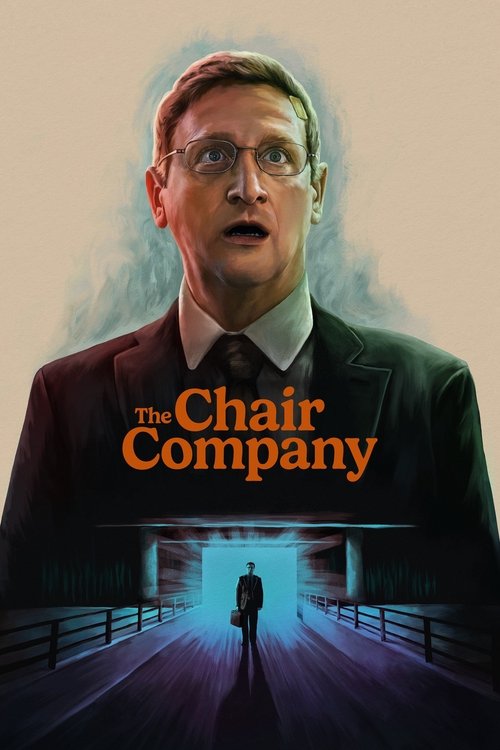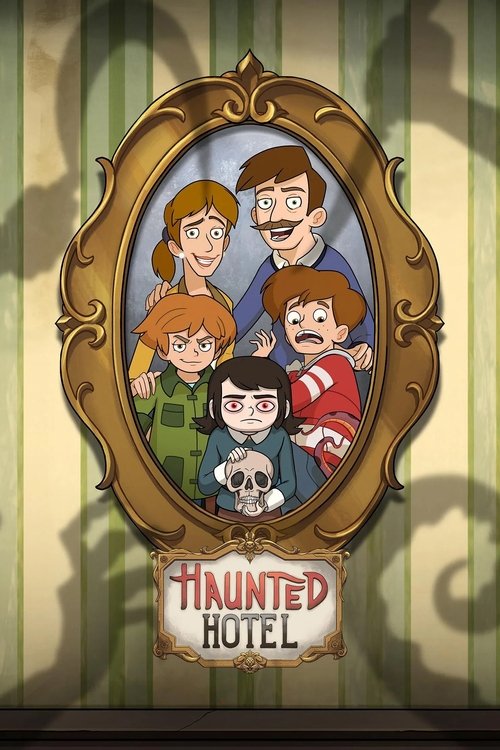
Ask Your Own Question
What is the plot?
Sorry, we haven't had the time to watch this and are working on a plot for this title. Check back in a few days.
What is the ending?
At the end of "Who's That Girl," episode 2 of Overcompensating Season 1, Benny and Carmen fail to secure fake IDs to join the freshmen party at Rock Bar. Peter redeems himself by coming through for Benny, but he flakes on his date night. Meanwhile, Grace befriends an elderly woman for her volunteer hours, and Hailee, Carmen's party girl roommate, ends up throwing up.
Now, narrating the ending scene by scene in detail:
The episode culminates with Benny and Carmen still on their quest to find fake IDs to get into Rock Bar, where the rest of the freshmen, including the popular Miles, are partying. Despite their efforts scouring the campus and seeking help from various sources, including Carmen's roommate Hailee, they come up empty-handed. Hailee, known for her party lifestyle, tries to assist but ultimately cannot provide the IDs they need.
Peter, who had been unreliable earlier, steps up for Benny in a key moment, showing some support and reliability. However, his redemption is short-lived as he later flakes on a planned date night at a local Italian restaurant, leaving Benny disappointed.
Meanwhile, Grace, another main character, is shown engaging in volunteer work. She befriends an elderly woman, which is part of her effort to fulfill volunteer hours. This subplot runs parallel to the main storyline and highlights Grace's character traits and priorities.
The episode closes with Hailee, after a night of partying, throwing up, underscoring the chaotic and sometimes messy nature of college life.
In terms of character fates at the episode's end:
- Benny remains determined but frustrated, unable to join the party scene due to lack of fake IDs.
- Carmen shares Benny's disappointment and is unable to help her friend gain entry.
- Peter shows a moment of support but ultimately lets Benny down by missing their date.
- Grace continues her volunteer work, building a connection with the elderly woman.
- Hailee embodies the party lifestyle but suffers the consequences by the episode's end.
This detailed sequence of events closes the episode on a note of mixed successes and failures for the characters, setting up ongoing dynamics for the series.
Is there a post-credit scene?
Yes, the episode "Who's That Girl" from Overcompensating Season 1 (2025) does have a post-credit scene. It is described as a massive, game-changing moment that is considered the best part of the episode or movie. This post-credit scene significantly impacts the story, making it a key highlight. However, specific details about the content or actions in the post-credit scene are not provided in the available information.
What are the main character dynamics introduced in Overcompensating Season 1, Episode 2 'Who's That Girl'?
In 'Who's That Girl,' the second episode of Overcompensating Season 1, the story further explores the relationship between Benny, a closeted former football player, and Carmen, a freshman outsider. The episode highlights their growing friendship as they navigate college life together, including social challenges and identity struggles. It also deepens the dynamic involving Benny's sister Grace and her boyfriend Peter, whose machismo Benny tries to emulate to mask his true self.
How does 'Who's That Girl' develop Benny's struggle with his identity?
The episode 'Who's That Girl' focuses on Benny's ongoing internal conflict as he tries to overcompensate for his closeted sexuality by adopting a macho persona similar to Peter, Grace's jock boyfriend. This episode shows Benny's attempts to fit in and hide his true identity while dealing with the pressures of college social life and his own self-acceptance journey.
What new characters or relationships are introduced or expanded upon in this episode?
'Who's That Girl' expands on the friendship between Benny and Carmen, a freshman from New Jersey who was an outsider in high school. Their bond is central to the episode as they support each other through the challenges of their first year. The episode also further develops the presence of Grace and Peter, adding complexity to Benny's social environment and personal struggles.
What are some key events or challenges Benny and Carmen face in this episode?
In 'Who's That Girl,' Benny and Carmen face the challenges of fitting in at Yates University, including navigating new social circles, dealing with college parties, and confronting the pressures of pledging the college's secret society. These events test their friendship and individual identities as they try to find their place on campus.
How does the episode 'Who's That Girl' contribute to the themes of overcompensation and self-discovery in the series?
This episode illustrates the theme of overcompensation through Benny's efforts to mask his true self by mimicking the macho behavior of his peers, especially Peter. It also highlights the theme of self-discovery as both Benny and Carmen confront their insecurities and the desire to fit in, setting the stage for their personal growth throughout the series.
Is this family friendly?
The TV show Overcompensating, Season 1, Episode 2 ("Who's That Girl"), is not fully family friendly and contains content that may be objectionable or upsetting for children or sensitive viewers. It features severe sexual content and nudity, severe profanity, and moderate alcohol and drug use. Violence and frightening scenes are mild but present.
Specifically, without revealing plot details, viewers can expect:
- Explicit sexual discussions and some sexual scenes.
- Strong language and frequent profanity.
- Moderate depiction of alcohol and drug use.
- Mild instances of violence or intense moments.
The show is a comedy-drama centered on college life, including themes of identity and relationships, with a tone that mixes ribald humor and coming-of-age struggles. Due to the mature themes and explicit content, it is more suitable for older teens and adults rather than children or very sensitive audiences.

























